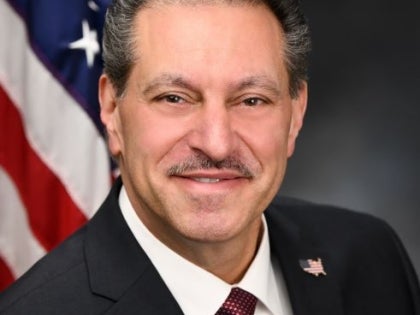
Addabbo: I Support Amending Public Health Law to Establish Medicaid Identification & Anti-Fraud Biometric Technology Program
Joseph P. Addabbo Jr
May 3, 2011
Scanners to Be Used by Hospitals, Clinics, Pharmacies for Patient ID, Greatly Reducing Costs of Fraud
Queens, NY, May 3, 2011 – NYS Senator Joseph P. Addabbo, Jr. (D-Queens), a member of the Senate’s Committee on the Aging, supports a measure pending in the Legislature, A.6555/S.4384, which would amend the public health law to allow New York to rapidly roll out a fraud prevention technology program many legislators say is well overdue.
The proposal would implement a technology-based fraud prevention mechanism in hospitals, clinics and pharmacies all across New York by relying on biometric technology. Biometrics is the science and technology of measuring and analyzing biological data. In information technology, biometrics refers to technologies that measure and analyze human body characteristics, such as DNA, fingerprints, eye retina and irises, voice patterns, facial patterns and hand measurements, for authentication purposes.
The legislation will do away with the current and faulty practice of allowing each county to issue its own Medicaid card and strengthens weak identification requirements to access Medicaid services. The implementation of biometric technology in the Medicaid program will bring mass fraud to a halt due to the strong verification and authentication measures of the system. It will stop Medicaid payments for fraudulent services at the point of service rather than the “pay and chase” behavior New York has become too comfortable using.
The legislation would require the implementation of biometric palm readers and software in all hospitals, health clinics, and pharmacies. The technology would catch duplicate prescription requests and medical services. In addition to security, the driving force behind biometric verification has been convenience. Biometric devices, such as finger scanners, consist of: a reader or scanning device; software that converts the scanned information into digital form and compares matches; a smart card that stores the biometric data authentication, identification and payment authorization. The law would also require the NYS Department of Health to provide a report to the legislature on the cost and implementation of the Medicaid identification and anti-fraud biometric technology program within six months of enactment.
Explains Senator Addabbo, “Billions of dollars in Medicaid fraud are being wasted annually in New York State, and with anticipated further major cuts in Medicaid funding on the horizon, I am hopeful that this legislation could result in saving the state needed funds and protect health care for many individuals.” According to the Senator, the state will spend over $54 billion dollars this fiscal year (2011-2012) on Medicaid. Experts predict that 10%, or over $5 billion, comprises fraudulent charges to the state’s health insurance for the poor, disabled and elderly. It is Addabbo’s contention to cut out the fraud on such a tremendous scale first, before the state cuts billions of dollars in vital services for our children and the elderly infirm. “I believe that Medicaid’s skyrocketing expenditures are mostly caused by rampant fraud. It’s time our state legislature addresses this issue for our people and looks to prevent the annual theft of over $5 billion of taxpayer funds. Fraud prevention technology is the only practical mechanism to stop Medicaid fraud, abuse and overuse of services,” Addabbo concluded.
The $20 million one-time investment in the technology needed for this anti-fraud measure can be raised by implementing a one-penny-per-prescription charge for a six-month period on each of the $4 billion Medicaid-paid prescriptions written each year (on average, each Medicaid recipient fills 100 prescriptions per year and there are over four million Medicaid recipients in New York).
The legislation is now being reviewed by the state Senate’s Committee on Health before passage and being sent to the governor for his signature. If passed, the law will take effect immediately.
# # #
Share this Article or Press Release
Newsroom
Go to NewsroomSanta (Senator Addabbo) Brings Holiday Joy to Tudor Village
December 23, 2025


